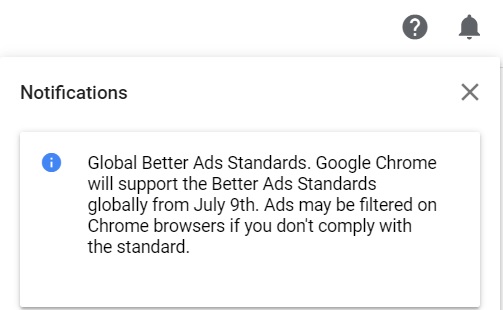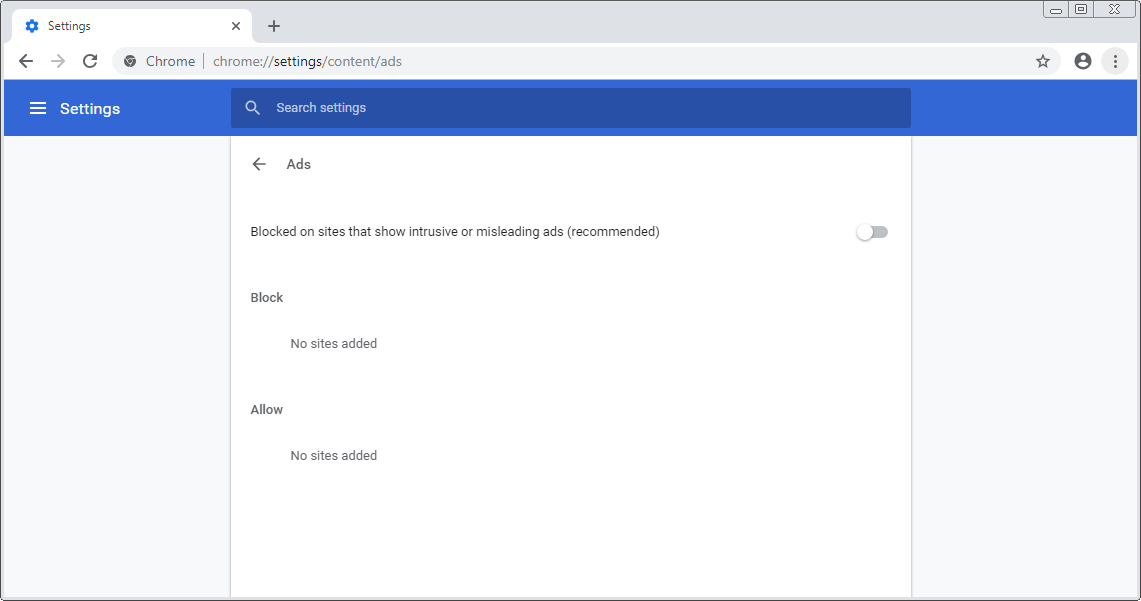
In 2018, Google Chrome started blocking abusive ad experiences on some sites in North America and Europe. Starting July 9, Google will be expanding Chrome's built-in ad blocking efforts to all other regions and ads will be blocked on sites that have performed abusive behavior.
Google AdSense is now sending notifications to site owners about the upcoming changes to Chrome's adblocking capabilities.

Specifically, the notification alerts site owners to ensure their pages are in compliance with ‘Better Ads Standards’, which was developed by the Coalition for Better Ads.
"Global Better Ads Standards. Google Chrome will support the Better Ads Standards globally from July 9th. Ads may be filtered on Chrome browsers if you don't comply with the standard," the notification reads.

The Better Ads Standards currently lists 12 ad experiences that are considered to be particularly annoying to users. Websites failing to meet the Better Ads Standards could get ad-blocked by Google Chrome.
Websites owners with verified property on Google Search Console can use the Abusive Experience Report tool to check if their sites are blacklisted.

The same dashboard can be also used to request removal from Chrome's blacklist.
Chrome users will still have control

Users can continue to see ads on blacklisted sites by disabling the feature in Settings -> Advanced -> Content -> Ads. To unblock ads on abusive sites, users would need to toggle the setting for "Blocked on sites that show intrusive or misleading ads (recommended)" to "Allowed".









Post a Comment Community Rules
You need to login in order to post a comment
Not a member yet? Register Now